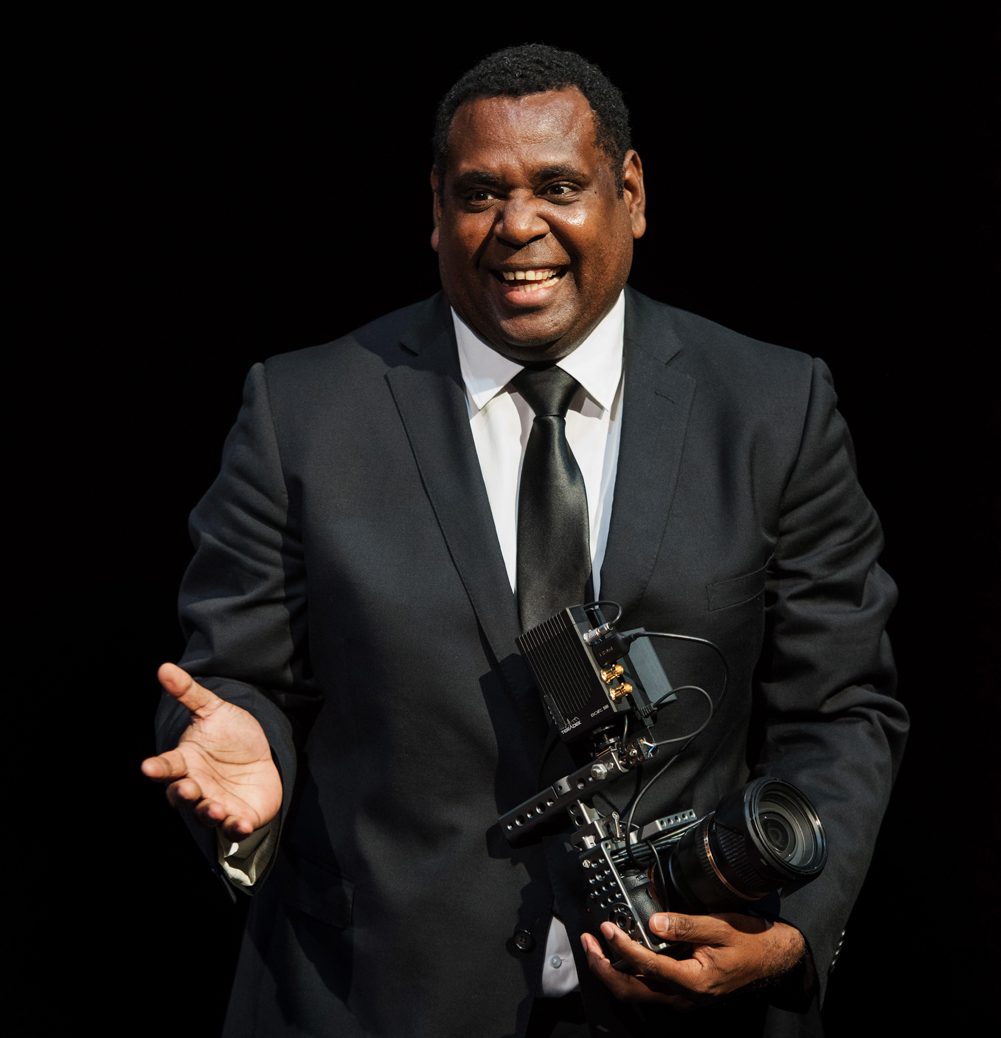Throughout his career, he’s told the stories of a range of diverse characters, from smuggler Marou Montebello in The Straits, to real-life Indigenous activist Eddie Mabo in Mabo. Now Jimi Bani is ready to share a far more personal story with Melbourne audiences: his own.
Don’t take that to mean that My Name is Jimi is an autobiographical piece though. You should think of it more as a ticket with which Bani transports us to Mabuiag Island, a tiny speck of land in the Torres Strait which the Wagadagam people have called home for thousands of years.
It is a land rich with history and culture, but in a community only 250 people strong, the importance of protecting that culture is a constant consideration. As his grandfather once said:
“There is a fire, a bright flame, that was lit in the past. It is still burning, but the woods are burning out. My job is to put new wood in to keep this fire burning.”
Long has it been up to the Wagadagam chiefs to serve as the fire keepers, the guardian of their tribe’s lore, and those who must ensure the stories, songs, and mythologies are passed on. In time, Bani tells us, that responsibility will be his, as it was his father’s, his grandfather’s, and every eldest male in his family going back for generations.
It’s a good thing then that he’s such an energetic, charming, and natural storyteller. From the moment Bani appears on stage, the audience is transfixed. He points to the welcome mat that lies between the seats and the stage, and invites all present into his life, his family’s life, and the life of his people.
The tale that unfolds over the next 70 minutes through dance, comedy, and puppetry is not told by Bani alone. Members of four generations of his family accompany him on stage: his mother Agnes, grandmother Petharie, brothers Conwell and Richard, and son Dmitri. While none are as capable performers as Bani (his mother, in particular, often seemed to be enjoying his jokes as much as the audience), but the family dynamic invokes a fun, homely atmosphere that makes the performance even more moving and memorable.
What’s more, there’s an honesty and integrity behind the decision. My Name is Jimi was conceptualised by Bani and his father, Ahdi Dimple Bani, who died during the development process. The show started with the family – though the excellent work of co-creator/director Jason Klarwein and projection and sound designer Justin Harrison must be recognised – and remains a family tale, even if the themes are so wide-reaching.
That especially becomes clear during some of My Name is Jimi‘s most emotional moments, such as when Petharie reveals the results of her and her late husband’s endeavours to see Wagadagam artifacts returned to Mabuiag, or Bani’s reaction when Dmitri picks up his phone to chat with a friend just when he’s about to talk about his father.
It’s difficult to imagine anyone leaving the theatre and forgetting My Name is Jimi any time soon. That’s no small feat when you consider it was mostly filled with white Australians whose very identity has never come under threat in such a way. Bani allows us to empathise through a perfect blend of education and entertainment that proves him to be not just a masterful performer, but an ideal custodian of his people’s past, present, and future.
—
My Name is Jimi plays as part of the Melbourne International Arts Festival October 4th – 7th.

